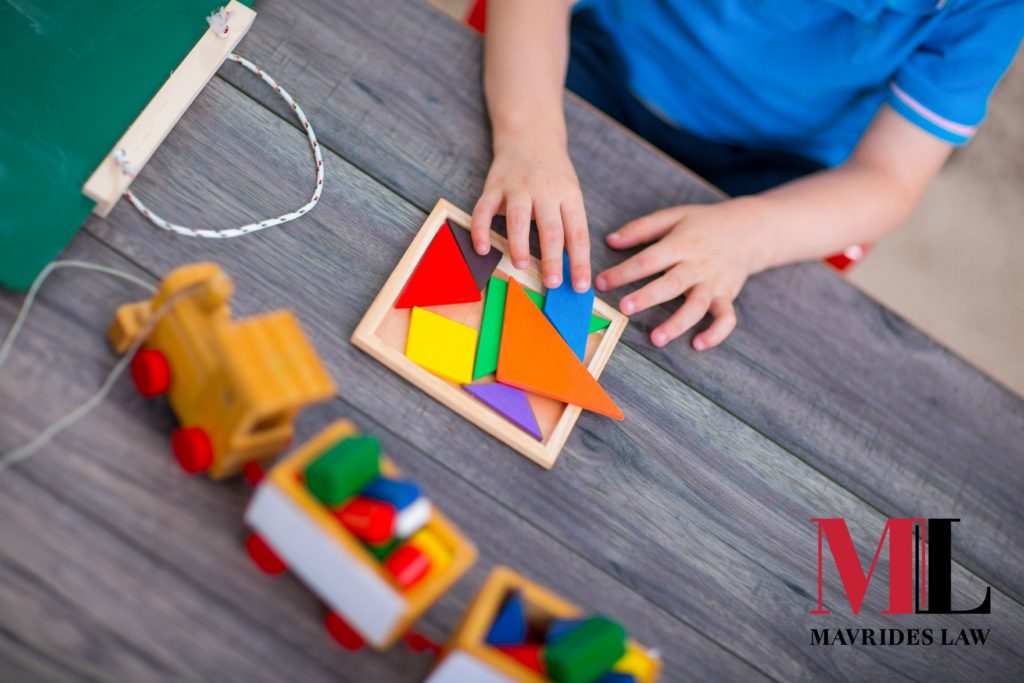By: Julia Rodgers
When parents decide to divorce, it can have a great effect on their own individual emotions, as well as those of their children. Often times, a child's feelings are not considered when parents decide to divorce. Even so, the reality of the situation, and the adjustment of all it entails often creates anxiety and feelings of loss for the children.
In the eyes of a child, parents are like two pillars of strength that are holding everything together. They are the foundation of nearly everything that exists in a young child's mind. When these two pillars become torn apart, life as the child knows it will never be the same. Not only does the child experience a sense of loss, but he/she is more vulnerable to becoming emotionally uncentered as the parents’ divorce proceeds; bringing an overwhelming sense of disconnect and grief.
According to Michael Shaffran, LCSW and author of ‘The Psychological Effects of Divorce on Children’, there is a huge psychological effect on children of divorced parents that can be very devastating and traumatic. Yet, many divorced couples can become oblivious to how their private (or not-so-private) war affects their children. In a study examining the long-term effects associated with children of divorced parents, it was found that children felt unhappy, anxious, lonely, and insecure some six years after their parents divorced. Additionally, 35% (or three times as many) children of divorced parents need psychological or emotional interventions within the first year of their parents’ divorce.
These and other related statistics are staggering. Correlations have been found between children of divorced parents and higher high school dropout rates, increases in suicide, and suicide ideation rates, lower academic performance, and a host of others. While the side effects of being a child or divorce is long, Michael Shaffran indicates that most parents are in the dark when it comes to knowing the emotional and psychological state of their children following their divorce.
So, what can parents do to reduce the emotional effects that their children are experiencing during and after a divorce? Below are some strategies provided by Meri Wallace, LCSW, Parent, Coach ,and Child and Family Therapist, from her article: 8 Strategies for Helping Kids Adjust to a Divorce.
Eight Strategies for Helping Children Adjust to Divorce
Meri Wallace says that since children experience a lot of anxiety when they are exposed to ongoing parental discord, it's often better for them to relate to each parent one-on-one, as this will provide a healthier environment.
If you're looking for ways to help your kids better adjust to a divorce, then the following eight strategies may be used as intervention techniques; helping reduce the impact the divorce is having on you children, and helping them to better adjust.
- Explain the divorce to your children together.
- Provide your children with reassurance that they are still loved by both of you.
- Have discussions with your children about their emotions.
- Emphasize that the divorce is not their fault.
- Avoid talking badly about each other—especially in front of the children.
- Give your children plenty of notice about the divorce before it occurs.
- Work with a professional parenting expert or family therapist to ease the negative impact, and to assist with the adjustment.
- Give your children time to adjust to the transition.
These steps will help children to continue feeling loved during the divorce process. When both parents create a stable environment for their right away, this encourages the children to adapt to their new way of living, and their new routines much faster.
Learn How to Reduce Conflicts
Edward Kruk, Ph.D, an Associate Professor of Social Work at the University of British Columbia, (who also specializes in Child and Family Policy) has written an article about the ways in which family therapy and parenting coordination can reduce conflict. He stresses that parents should do all they can to avoid exposing their children to high-conflict environments, and to also consider therapeutic interventions; such as family therapy, divorce education, family mediation, and parenting coordination techniques. These efforts are intended to draw a line between the parents’ previous marital hostilities, and the ongoing need in fulfilling their parental roles and responsibilities.
How Therapeutic Interventions Can Help Your Kids
According to Edward Kruk, there are times when a more specialized intervention is required for children during or after a divorce. These interventions can provide additional support for your children, in an effort to reduce exposure to any ongoing conflicts. Kruk adds that it is important for any hostility between parents to be minimized during the days following the divorce.
Are you currently going through litigation? If so, it’s during this time that Kruk suggests your children are at the greatest risk for emotional damage. Parents can help by being mindful about how divorce-related actions are affecting their children. Not only does Kruk suggest that parents learn to develop positive relationships with each other, but that they also learn how to deal with any co-parenting challenges that they may have. Most of which will require some form of therapeutic intervention.
Six key components for long-term co-parenting and intervention support:
- Exploration of the impact the divorce has on the children in a structured setting—post-divorce.
- Developing a workable co-parenting plan that meets your children's needs, with a plan to monitor the environment of the child post-divorce.
- Interventions to help the relationship between parents; helping the long-term success of any co-parenting arrangements.
- Counseling should be set up on a long-term basis as follows:
- a) In a one-on-one setting between therapist and child.
- b) Between the counselor, each parent, and each child.
*This should happen both during and after the divorce
- Intervention that measure the emotional healing progress for all parties involved.
- Ongoing reviews of the parenting plan should take place to monitor any developmental changes that have taken place with the parents, or with the children. The review should also make note of any structural changes that may have taken place in the family as well, such as any of the following:
- a) Relocation
- b) The introduction to a new partner
- c) Interacting with a new stepparent
The use of a family mediator is highly recommended by Kruk, who states that they can reopen the co-parenting plan to make any necessary modifications on an as-needed basis.
According to a report on the Effects of Divorced on Children, by the Canadian Department of Justice, therapeutic intervention programs have a greater effect on children of divorced parents when they are implemented soon after the decision to get a divorce has been made. The report also indicates that it is not certain which types of interventions are more effective than others at diminishing the negative impacts of divorce. The report concluded by saying that when intervention and support programs are provided to the parents and their children, those families appear to have the greatest overall improvements.
If you have children and are going through a divorce, you likely have a lot of feelings and changes going on around you. The good news is that there is help available for both you and your children in making the process run as smooth as possible.
To speak with a lawyer about divorce or other family law matter, contact Mavrides Law in Boston, Newton, or Quincy, MA. To schedule an initial consultation, call 617-723-9900 or contact the firm at info@mavrideslaw.com



